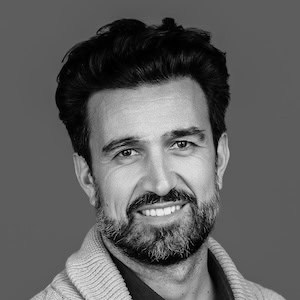-
Inexpensive Impact: The Case for Frugal Innovations
Over 4 billion people around the world lack necessities like food, water, energy, health care and housing. This represents not only a major social challenge but a major market, as low-income consumers have an annual purchasing capacity of US $5 trillion. Rajat Chabba and Sheena Raikundalia at Intellecap explore how entrepreneurs are developing innovative, frugal products to meet these customers’ needs – and why an ecosystem approach is needed to help them scale their solutions.
- Categories
- Technology
-
The New Face of Poverty: Why Unemployment isn’t the Issue – And How Financial Inclusion Can Help
When you think about poverty, what does it look like? Many people might picture an undernourished African child, or an elderly beggar sitting in the street. But as Oakam CEO Frederic Nze explains, the reality can be far different. Poverty today often involves the struggles of the working poor, and it’s defined less by extreme deprivation and more by lack of access – to clean water, to power, to basic education, and increasingly to the internet. Nze explores the implications of this shift for the financial inclusion and development sectors.
- Categories
- Finance, Telecommunications
-
Watch the Recording of the Live-Streamed Debate: Is There Still Room in Microfinance for Smaller MFIs?
As the 2018 European Microfinance Week came to a close, the conference hosted a live debate on whether there's still room in microfinance for "the little guy" - ie: smaller MFIs. This was an Oxford-style debate, with two speakers arguing that there's no room for smaller players, and two arguing for the continued relevance of these institutions. Hear their arguments and find out who won (yes, there were judges) in the recorded video here.
- Categories
- Finance
-
Accelerating Energy Access in India: New Research Highlights Keys to Developing a Nascent Industry
India’s clean energy industry is growing fast. But the challenges facing enterprises there – and the lessons they are learning – are neither unique to the clean energy industry nor to India. In fact, says Colm Fay at the William Davidson Institute, recent research suggests that India’s clean energy sector is following patterns that can be observed in any nascent industry. He explores how existing knowledge about how industries develop can help guide investment, and provide some clues about what the sector’s future may hold.
- Categories
- Energy
-
The Digital Transformation: Four Opportunities and Three Threats for Traditional Financial Institutions
Digital finance can reduce the annual cost of serving customers by up to 80 percent – one reason why financial services providers are embracing it. As MicroSave founder Graham Wright sees it, this race toward digitization is creating a watershed moment for financial and social inclusion. The sector’s decisions now will determine whether it will contribute to truly inclusive economies – or create a growing digital divide. Wright explores four ways this transformation could help financial services providers and their customers – along with three major pitfalls they must avoid.
- Categories
- Finance
-
Affordable, Scalable, Overlooked: Evaporative Cooling Can Fight Food Loss – Why isn’t the Development Sector Embracing It?
Food loss due to lack of effective storage is a global problem: In sub-Saharan Africa alone, approximately 23 percent of available food is lost or wasted. There’s increasing interest in an innovative yet old-school solution to the problem: evaporative cooling. But though the technology can be adopted with minimal training, low up-front costs and no electricity, it is not widely used. MIT D-Lab research engineer Eric Verploegen explores five ways to increase the effective production, dissemination and usage of this technology.
- Categories
- Agriculture, Energy, Technology
-
Why Social Entrepreneurship is Vital to the SDGs: 15 Award-Winning Entrepreneurs Share their Insights
In recent months, the global development sector has faced some unwelcome news: The world is not on track to reach the Sustainable Development Goals (SDGs). But there is still cause for optimism: The ongoing growth of social business points to possible ways to overcome this slow progress. Mark Horoszowski, CEO of MovingWorlds.org, met with award-winning social entrepreneurs from around the world at the recent SOCAP conference, and asked them how entrepreneurship can help achieve the SDGs. Their responses, compiled here, highlight many of the reasons the sector is moving to the forefront of the global development agenda.
- Categories
- Social Enterprise
- Tags
- global development, SDGs
-
Education + Technology = Equality: An Innovative Learning Platform Aims to Go International
All children deserve an equal education, and most people agree on that goal. Yet globally, tens of millions of children are not in school, and many schools struggle to retain qualified teachers. Suren Aloyan founded the social enterprise Dasaran to address these issues in Armenia, through an online platform that offers interactive learning content and communication and assessment tools to schools, parents and students. Aloyan explores the impact the platform has generated so far – and discusses its plans to scale up.
- Categories
- Education, Social Enterprise, Technology
- Tags
- global development, SDGs










